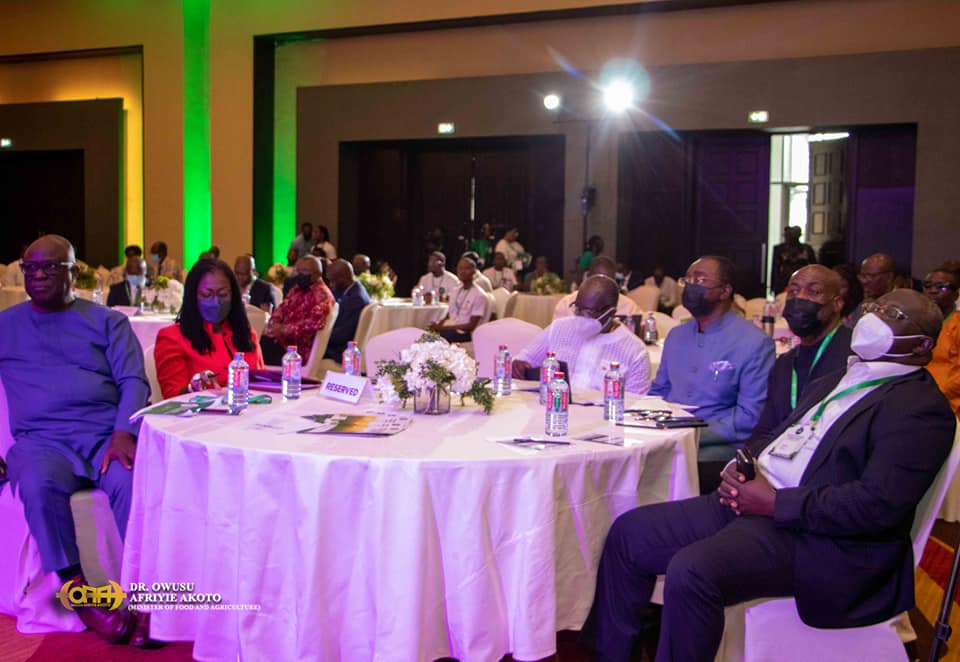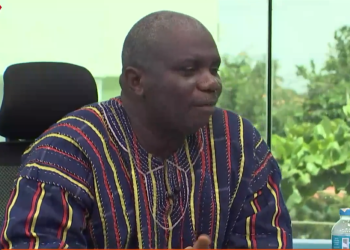In its quest to provide sustainable solutions for the agricultural sector, Ghana Incentive-Based Risk-Sharing System for Agricultural Lending Project (GIRSAL) has launched the Agriculture Stakeholder Convening Platform.
Ghana’s agricultural sector is saddled with many challenges, ranging from weak institutional enforcement of standards to a lack of a platform to sustain dialogue among key stakeholders.
The Agriculture Stakeholder Convening Platform dubbed “Agribusiness Public-Private Partnership Platform” will thus focus on providing practical solutions to these challenges.
The platform will primarily seek to provide an avenue for government institutions and private sector to identify and resolve critical challenges in the agricultural finance and agribusiness space.

Under this initiative, GIRSAL will also provide a sustainable and coordinated platform for dialogue among key stakeholders on technical issues affecting the agriculture sector.
The launch of the platform falls in line with GIRSAL’s 5-years strategic plan aimed at championing the transformation of the agric sector to ensure growth.
This platform is expected to increase productivity, promote a thriving agribusiness environment, encourage investment in the sector, and improve terms of trade and credit.
GIRSAL is well-placed to undertake this initiative because its services benefit the business objectives of both the private and public sectors of increasing investment in the agricultural sector.
The launch was graced by various stakeholders in the agricultural sector including the Minister of Food and Agriculture; Owusu Afriyie Akoto, Governor for Bank of Ghana; Dr. E. Y. Addison, and Minister of Finance, Ken Ofori-Atta.
‘Fix structural challenges’
Launching the platform, the Minister of Finance, Ken Ofori-Atta asked various stakeholders to address structural challenges hindering the agricultural sector from realising its full potential.
He indicated that although the government had made strides through its flagship programme, Planting for Food and Jobs, other stakeholders must come on board to surmount the challenges confronting the agricultural sector.
“Even as we in government are preoccupied with finding urgent solutions to the emerging food crisis, precipitated by Russia’s invasion of Ukraine, we cannot afford to take our eyes off the medium and long-term structural issues that we must tackle.”
“A lot is required from businesses, banks, various government agencies, and experts to realise the agricultural transformation that we all desire,” the Minister said.
Proferring solutions for these challenges, Ken Ofori-Atta posited that the focus should largely be on conserving foreign exchange, increasing food security, and creating jobs.
“We must make progress in these areas in order to substantially eliminate our dependence on foreign imports,” he said.
New bill in the offing
The Minister of Food and Agriculture, Owusu Akoto Afriyie also indicated that his outfit is preparing a draft bill to get commercial banks to lend more to the agriculture sector.
According to him, the low level of credit granted by commercial banks to players in the agric sector has become a major impediment to the transformation of the sector in the country, despite its significant contribution to national economic growth.
The Minister said the draft legislation will be modelled on similar ones done in many Asian countries, where banks are bound to ensure that at least 20 percent of their lending is to players in the agriculture sector.
“Because of the lack of responses that we are getting from the commercial banks, I am preparing a cabinet memo for cabinet to consider legislation for agricultural credit in this country. I know from my work in India some decades ago and other Asian countries that this legislation exists where for every 100 cedis of credit given out by any commercial bank, 20 cedis in the case of India has to be in the agricultural area.
“So we are preparing this because if persuasion fails, then we have to legislate as a government. We see that as the biggest challenge to the march towards transforming agriculture. The banks should come on board,” he said.
GIRSAL will help de-risk agricultural lending
The Managing Director of Agricultural Development Bank PLC, John Kofi Mensah commended GIRSAL’s efforts at reducing the risks associated with the agricultural lending space.
“As the leading commercial bank for agricultural lending in the country, we see that introducing GIRSAL
into the agricultural lending space will positively impact lending in the sector
“I wish to commend the government, the Bank of Ghana, and all other stakeholders for such a wonderful initiative
aimed at de-risking agricultural lending in the country,” he said.
About GIRSAL
GIRSAL is a non-banking financial institution established to de-risk agricultural financing and stimulate increased lending to the agricultural sector by financial institutions in Ghana.
It provides credit risk guarantees to financial institutions lending to agriculture as well as technical support to enhance their capacity to assess and structure agribusiness loan applications.











